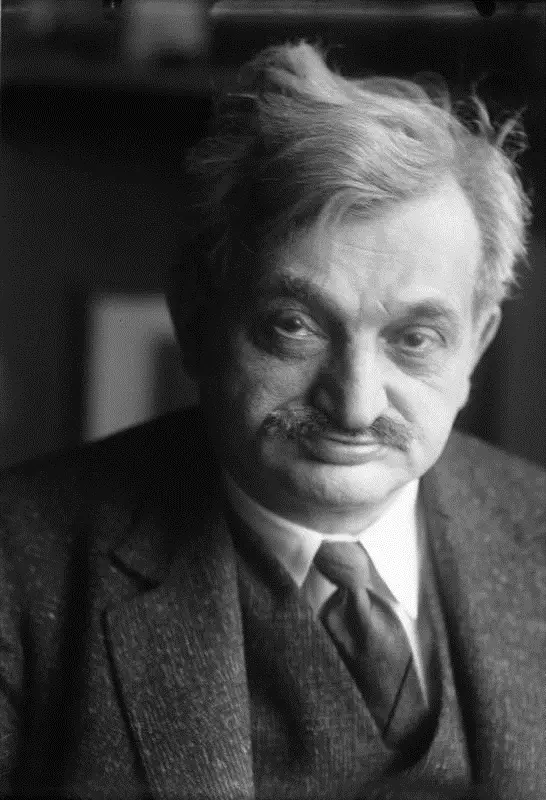
Emanuel Lasker (Wiki image).
Emanuel Lasker.
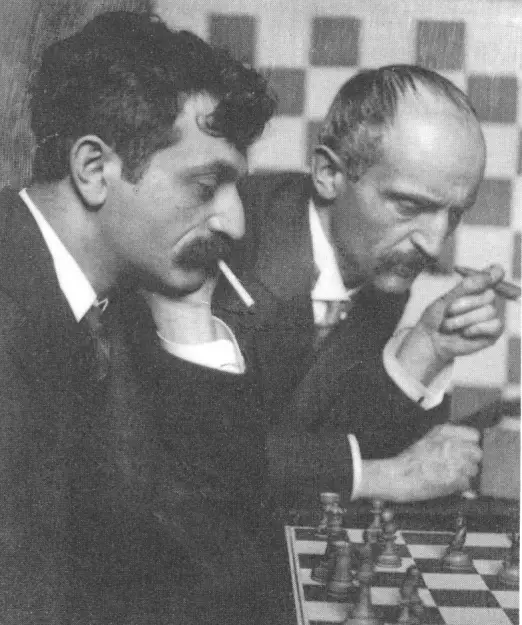
Emanuel Lasker (left) and his elder brother Berthold Lasker in 1907 (Wiki Image).
Emanuel Lasker was a German chess grandmaster who was the world chess champion from 1894 to 1921. He is considered one of the greatest chess players of all time.
Lasker was born in Berlin, Germany, in 1868. He began playing chess at the age of six and quickly became one of the best players in the world. In 1894, he defeated Wilhelm Steinitz to become the world chess champion. He held the title for 27 years, the longest reign of any world chess champion.
Lasker was a master of positional play. He was very good at building a strong position and slowly grinding down his opponents. He was also very good at defending and coming back from difficult positions.
Lasker was also a very strong mathematician and philosopher. He wrote several books on chess and mathematics and taught mathematics at several universities.
Lasker died in New York City in 1941. He is considered one of the greatest chess players of all time, and chess players still study him today.
Here are some of Lasker’s notable achievements:
- World chess champion from 1894 to 1921
- Longest reign of any world chess champion
- Master of positional play
- Strong mathematician and philosopher
- Author of several books on chess and mathematics
- Taught mathematics at several universities
Lasker is a true legend of chess, and his legacy continues to inspire chess players around the world.
Emanuel Lasker quotes.
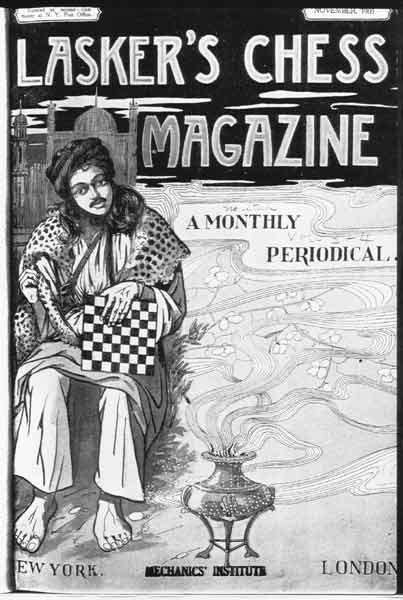
Lasker’s Chess Magazine cover from November 1906 (Wiki Image).
Here are some of Emanuel Lasker’s most famous quotes:
- “When you see a good move, look for a better one.”
- “The hardest game to win is a won game.”
- “Without error, there can be no brilliancy.”
- “Chess is not a game of luck. It is a game of skill and calculation.”
- “The object of chess is to checkmate the king.”
Lasker was a master of chess, and his quotes reflect his deep understanding of the game. These quotes are still relevant today, and they can help chess players improve their game.
Here are some additional quotes from Lasker:
- “Chess is a game of strategy and tactics. Strategy is the art of planning ahead, and tactics is the art of taking advantage of your opponent’s mistakes.”
- “The best way to improve your chess is to study the games of the great masters.”
- “Chess is a game of the mind, and it can help you improve your concentration and problem-solving skills.”
- “Chess is a great game, and it can be enjoyed by people of all ages.”
Lasker believed that chess was more than just a game. He believed that it could help people improve their minds and their lives. His quotes continue to inspire chess players and other people around the world.
Chess champions history.
Here is a list of all the world chess champions, along with the years they held the title:
- Wilhelm Steinitz (1886-1894)
- Emanuel Lasker (1894-1921)
- José Raúl Capablanca (1921-1927)
- Alexander Alekhine (1927-1935, 1937-1946)
- Max Euwe (1935-1937)
- Mikhail Botvinnik (1948-1957, 1958-1960)
- Vasily Smyslov (1957-1958)
- Mikhail Botvinnik (1960-1963)
- Tigran Petrosian (1963-1969)
- Boris Spassky (1969-1972)
- Bobby Fischer (1972-1975)
- Anatoly Karpov (1975-1985, 1993)
- Garry Kasparov (1985-2000)
- Vladimir Kramnik (2000-2006)
- Veselin Topalov (2006-2007)
- Viswanathan Anand (2007-2013)
- Magnus Carlsen (2013-2023)
- Ding Liren (2023-present)
The World Chess Championship is held every two years, and the challenger is determined through a series of qualifying tournaments. The match is played over 12 games, and the first player to win six games becomes the new world champion. If the match is tied after 12 games, then two additional tiebreak games are played.
The World Chess Championship is one of the most prestigious chess tournaments in the world. It is a testament to the skill and dedication of the world’s best chess players.
Here are some additional details about some of the most notable world chess champions:
- Wilhelm Steinitz was the first world chess champion. He was a master of positional play and is considered one of the greatest chess players of all time.
- Emanuel Lasker was the world chess champion for over 25 years. He was a master of all aspects of the game and is considered one of the greatest all-around chess players of all time.
- José Raúl Capablanca was known for his elegant and attacking style of play. He was the world chess champion for over eight years and is considered one of the greatest attacking players of all time.
- Alexander Alekhine was the world chess champion for over 17 years. He was a master of both positional and attacking play, and he is considered one of the greatest all-around chess players of all time.
- Bobby Fischer was a child prodigy who became the world chess champion at the age of 20. He was known for his aggressive style of play and is considered one of the greatest chess players of all time.
- Garry Kasparov was the world chess champion for over 15 years. He was a master of all aspects of the game and is considered one of the greatest chess players of all time.
- Magnus Carlsen is the current world chess champion. He is known for his aggressive style of play and is considered one of the greatest chess players of all time.
Chess: aggressive, positional play, natural talent, opening, positional weaknesses, middlegame, pawn defensive, endgame, sacrifice, and the players’ psychological state.
Sure, here is a brief overview of the different aspects of chess:
- Aggressive play is characterized by taking risks and attacking the opponent’s pieces. Aggressive players are often willing to sacrifice material to gain an advantage.
- Positional play is characterized by controlling the important squares on the board and developing the pieces to create a strong position. Positional players are often patient and willing to wait for their opponent to make a mistake.
- Natural talent is the innate ability to play chess well. People with natural talents often have a good memory for chess positions and can see patterns on the board that other players cannot.
- The opening is the first few moves of the game. Chess players often study openings to gain an advantage in the early stages of the game.
- Positional weaknesses are any flaws in a player’s position that their opponent can exploit. Positional weaknesses can be created by making careless moves or by not developing the pieces properly.
- The middlegame is the period of the game after the opening and before the endgame. The middlegame is often the most complex part of the game, and it is where players must demonstrate their tactical skills and ability to calculate variations.
- Pawn defense is the art of protecting your pawns from attack. Pawns are the weakest pieces on the board, and opponents often target them. Good pawn defense can prevent your opponent from gaining an advantage.
- The endgame is the game’s final stage, when few pieces are left on the board. Endgames are often won by the player who can mate the opponent’s king or force the opponent to a stalemate.
- Sacrifice is the act of giving up material to gain an advantage. Sacrifices can be very effective, but they must be carefully calculated to be successful.
- Players’ psychological state is an important factor in chess. Those who can stay calm and focused under pressure are more likely to play well.
These are just some of the many aspects of chess. The game is incredibly complex, and there is always more to learn.
A.I Hypothetical Emanuel Lasker Simulation of Chess Champions Highlights.
Emanuel Lasker vs. Wilhelm Steinitz.
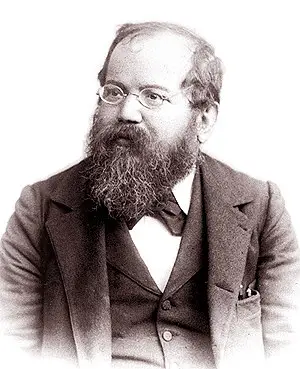
Wilhelm Steinitz (Wiki Image).
Emanuel Lasker and Wilhelm Steinitz were two of the greatest chess players of all time. Steinitz was the first world champion, and Lasker was the second. Both players were known for their incredible skill and intelligence.
In a hypothetical match between Lasker and Steinitz, it would be a very close match. Both players were incredibly strong, and they had different strengths and weaknesses.
Lasker was a master of positional play. He was very good at building up a strong position and then slowly grinding down his opponents. He was also very good at defending, and he was able to come back from difficult positions.
Steinitz was a master of strategic play. He was very good at understanding the long-term implications of his moves, and he was able to create winning positions even from seemingly equal positions. He was also very good at calculation, and he was able to find the best moves in even the most complex positions.
In terms of natural talent, Lasker was probably the more gifted player. He had an incredible memory, and he was able to see patterns on the board that other players could not. Steinitz was also a very talented player, but he did not have the same natural gifts as Lasker.
In terms of opening play, Steinitz was the better player. He had a deep understanding of the opening theory, and he was able to surprise his opponents with unexpected moves. Lasker was also a good opening player, but he was not as good as Steinitz.
In terms of positional weaknesses, Lasker did not have any significant weaknesses in his positional play. He was very good at both attacking and defending. Steinitz had a few weaknesses in his positional play. He could sometimes be too focused on the long term, and he could miss opportunities to win in the short term.
In terms of the middlegame, both players are very strong. They are both able to calculate variations, and they are both able to find the best moves in complex positions. However, Lasker was probably the better player in the middlegame. He was able to create more attacking chances, and he was able to take advantage of his opponents’ mistakes.
In terms of pawn defense, Lasker was the better player. He was able to defend his pawns very well, and he was able to create attacking chances from even the most difficult positions. Steinitz was also a good pawn defender, but he was not as good as Lasker.
In terms of endgame, Lasker and Steinitz were both very good. They were both able to find the best moves in even the most complex positions. However, Lasker may have had a slight edge in this area.
In terms of sacrifice, both players were willing to sacrifice pieces in order to win the game. However, Lasker was probably the better player in this area. He was able to calculate the variations more accurately, and he was able to find the best sacrifices in even the most complex positions.
In terms of the players’ psychological state, Lasker was probably the more stable player. He was able to focus on the game even when things were not going his way. Steinitz could sometimes be erratic, and he could be affected by his emotions.
Ultimately, it is impossible to say for sure who would have won in a hypothetical match between Lasker and Steinitz. Both players were incredibly strong, and they had different strengths and weaknesses. However, Lasker was probably the better player overall, and he would likely have won the match.
Emanuel Lasker vs. José Raúl Capablanca.
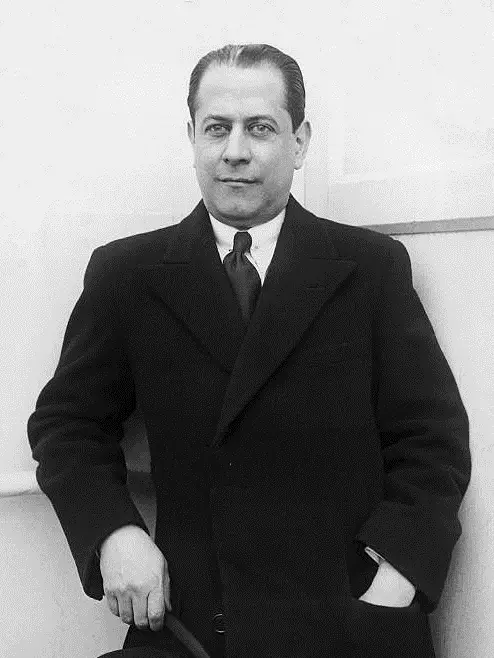
Capablanca in 1931 (Wiki Image).
Emanuel Lasker and José Raúl Capablanca were two of the greatest chess players of all time. Lasker was the world champion from 1894 to 1921, while Capablanca was the world champion from 1921 to 1927. Both players were known for their incredible skill and intelligence.
In a hypothetical match between Lasker and Capablanca, it would be a very close match. Both players were incredibly strong, and they had different strengths and weaknesses.
Lasker was a master of positional play. He was very good at building up a strong position and then slowly grinding down his opponents. He was also very good at defending, and he was able to come back from difficult positions.
Capablanca was a master of attacking play. He was always looking for opportunities to attack, and he was not afraid to take risks. He was also very good at calculating variations, and he was able to find the best moves in even the most complex positions.
In terms of natural talent, Lasker was probably the more gifted player. He had an incredible memory, and he was able to see patterns on the board that other players could not. Capablanca was also a very talented player, but he did not have the same natural gifts as Lasker.
In terms of opening play, Lasker was the better player. He had a deep understanding of the opening theory, and he was able to surprise his opponents with unexpected moves. Capablanca was also a good opening player, but he was not as good as Lasker.
In terms of positional weaknesses, Lasker did not have any significant weaknesses in his positional play. He was very good at both attacking and defending. Capablanca had a few weaknesses in his positional play. He could sometimes be too aggressive, and he could miss opportunities to defend.
In terms of the middlegame, both players are very strong. They are both able to calculate variations, and they are both able to find the best moves in complex positions. However, Lasker was probably the better player in the middlegame. He was able to create more attacking chances, and he was able to take advantage of his opponents’ mistakes.
In terms of pawn defense, Lasker was the better player. He was able to defend his pawns very well, and he was able to create attacking chances from even the most difficult positions. Capablanca was also a good pawn defender, but he was not as good as Lasker.
In terms of endgame, Lasker and Capablanca were both very good. They were both able to find the best moves in even the most complex positions. However, Lasker may have had a slight edge in this area.
In terms of sacrifice, both players were willing to sacrifice pieces in order to win the game. However, Lasker was probably the better player in this area. He was able to calculate the variations more accurately, and he was able to find the best sacrifices in even the most complex positions.
In terms of the players’ psychological state, Lasker was probably the more stable player. He was able to focus on the game even when things were not going his way. Capablanca was also a very mentally strong player, but he could sometimes be erratic.
Ultimately, it is impossible to say for sure who would have won in a hypothetical match between Lasker and Capablanca. Both players were incredibly strong, and they had different strengths and weaknesses. However, Lasker was probably the better player overall, and he would likely have won the match.
Emanuel Lasker vs. Alexander Alekhine.
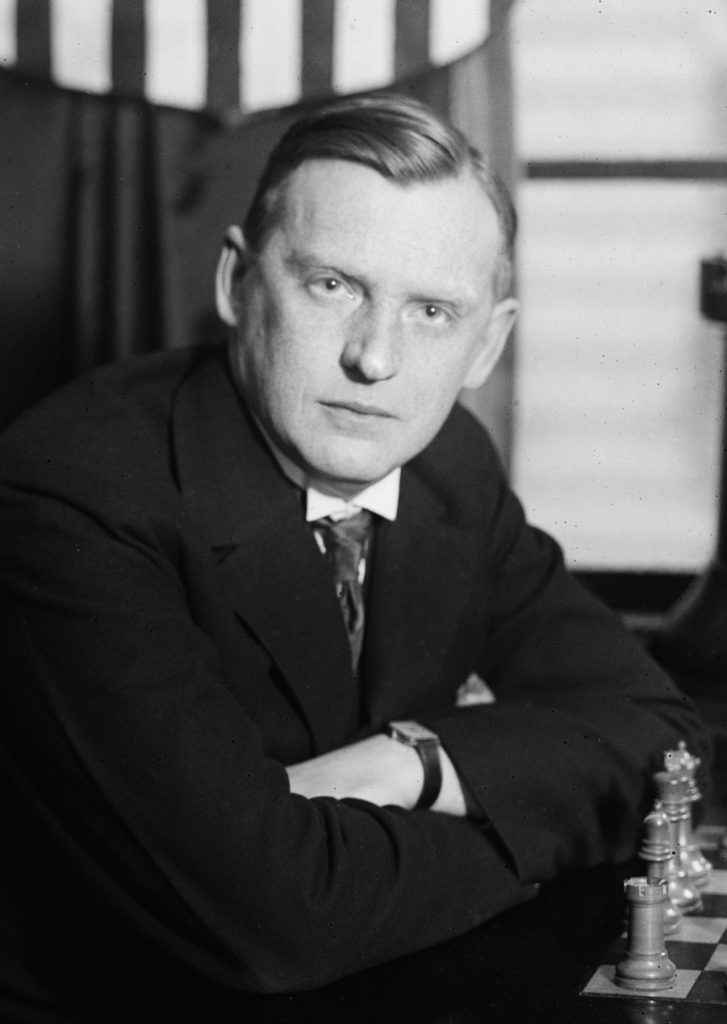
Alekhine, c. 1924 (Wiki Image).
Emanuel Lasker and Alexander Alekhine are two of the greatest chess players of all time. Lasker was the world champion from 1894 to 1921, while Alekhine was the world champion from 1927 to 1935.
In a hypothetical 12-game match between Lasker and Alekhine, it would be a very close match. Both players are incredibly strong, and they have different strengths and weaknesses.
Lasker was a master of positional play. He was able to build up a strong position and then slowly grind down his opponents. He was also very good at defending, and he was able to come back from difficult positions.
Alekhine was also a master of positional play, but he was also a very aggressive player. He was always looking for opportunities to attack, and he was not afraid to take risks. He was also very good at calculating variations, and he was able to find the best moves in complex positions.
In terms of natural talent, Lasker was probably the more gifted player. He had an incredible memory, and he was able to see patterns on the board that other players could not. Alekhine was also a very talented player, but he did not have the same natural gifts as Lasker.
In terms of opening play, Lasker was the better player. He had a deep understanding of the opening theory, and he was able to surprise his opponents with unexpected moves. Alekhine was also a good opening player, but he was not as good as Lasker.
In terms of positional weaknesses, Lasker did not have any significant weaknesses in his positional play. He was very good at both attacking and defending. Alekhine had a few weaknesses in his positional play. He could sometimes be too aggressive, and he could miss opportunities to defend.
In terms of the middlegame, both players are very strong. They are both able to calculate variations, and they are both able to find the best moves in complex positions. However, Lasker was probably the better player in the middlegame. He was able to create more attacking chances, and he was able to take advantage of his opponents’ mistakes.
In terms of pawn defense, Lasker was the better player. He was able to defend his pawns very well, and he was able to create attacking chances from even the most difficult positions. Alekhine was also a good pawn defender, but he was not as good as Lasker.
In terms of endgame, Lasker was the better player. He was a master of endgame technique, and he was able to win many games from lost positions. Alekhine was also a very good endgame player, but he was not as good as Lasker.
In terms of sacrifice, both players were willing to sacrifice pieces in order to win the game. However, Lasker was probably the better player in this area. He was able to calculate the variations more accurately, and he was able to find the best sacrifices in even the most complex positions.
In terms of the players’ psychological state, Lasker was probably the more stable player. He was able to focus on the game even when things were not going his way. Alekhine was known for his fiery temper, and he could sometimes get frustrated when things did not go his way.
Ultimately, it is impossible to say for sure who would have won in a hypothetical match between Lasker and Alekhine. Both players were incredibly strong, and they had different strengths and weaknesses. However, Lasker was probably the better player overall, and he would likely have won the match.
Emanuel Lasker vs. Mikhail Botvinnik.

Botvinnik in 1962 (Wiki Image).
Emanuel Lasker and Mikhail Botvinnik are two of the greatest chess players of all time. Lasker was the world champion from 1894 to 1921, while Botvinnik was the world champion from 1948 to 1963.
In a hypothetical 12-game match between Lasker and Botvinnik, it would be a very close match. Both players are incredibly strong, and they have different strengths and weaknesses.
Lasker was a master of positional play. He was able to build up a strong position and then slowly grind down his opponents. He was also very good at defending, and he was able to come back from difficult positions.
Botvinnik was also a master of positional play, but he was also a very calculating player. He was able to calculate variations very deeply, and he was able to find the best moves in even the most complex positions.
In terms of natural talent, Lasker was probably the more gifted player. He had an incredible memory, and he was able to see patterns on the board that other players could not. Botvinnik was also a very talented player, but he did not have the same natural gifts as Lasker.
In terms of opening play, Lasker was the better player. He had a deep understanding of the opening theory, and he was able to surprise his opponents with unexpected moves. Botvinnik was also a good opening player, but he was not as good as Lasker.
In terms of positional weaknesses, Lasker did not have any significant weaknesses in his positional play. He was very good at both attacking and defending. Botvinnik had a few weaknesses in his positional play. He could sometimes be too calculating, and he could miss opportunities to attack.
In terms of the middlegame, both players are very strong. They are both able to calculate variations, and they are both able to find the best moves in complex positions. However, Lasker was probably the better player in the middlegame. He was able to create more attacking chances, and he was able to take advantage of his opponents’ mistakes.
In terms of pawn defense, Lasker was the better player. He was able to defend his pawns very well, and he was able to create attacking chances from even the most difficult positions. Botvinnik was also a good pawn defender, but he was not as good as Lasker.
In terms of endgame, Lasker was the better player. He was a master of endgame technique, and he was able to win many games from lost positions. Botvinnik was also a very good endgame player, but he was not as good as Lasker.
In terms of sacrifice, both players were willing to sacrifice pieces in order to win the game. However, Lasker was probably the better player in this area. He was able to calculate the variations more accurately, and he was able to find the best sacrifices in even the most complex positions.
In terms of the players’ psychological state, Lasker was probably the more stable player. He was able to focus on the game even when things were not going his way. Botvinnik was known for his fiery temper, but he was also very good at controlling his emotions.
Ultimately, it is impossible to say for sure who would have won in a hypothetical match between Lasker and Botvinnik. Both players were incredibly strong, and they had different strengths and weaknesses. However, Lasker was probably the better player overall, and he would likely have won the match.
Emanuel Lasker vs. Bobby Fischer.

Fischer in 1972 (Wiki Image).
Emanuel Lasker and Bobby Fischer were two of the greatest chess players of all time. Lasker was the world champion for over 25 years, while Fischer was the world champion for three years. Both players were known for their incredible skill and intelligence.
In a hypothetical match between Lasker and Fischer, it would be a very close match. Both players were incredibly strong, and they had different strengths and weaknesses.
Lasker was a master of positional play. He was very good at building up a strong position and then slowly grinding down his opponents. He was also very good at defending, and he was able to come back from difficult positions.
Fischer was a master of aggressive play. He was always looking for opportunities to attack, and he was not afraid to take risks. He was also very good at calculating variations, and he was able to find the best moves in even the most complex positions.
In terms of natural talent, Lasker was probably the more gifted player. He had an incredible memory, and he was able to see patterns on the board that other players could not. Fischer was also a very talented player, but he did not have the same natural gifts as Lasker.
In terms of opening play, Lasker was the better player. He had a deep understanding of the opening theory, and he was able to surprise his opponents with unexpected moves. Fischer was also a good opening player, but he was not as good as Lasker.
In terms of positional weaknesses, Lasker did not have any significant weaknesses in his positional play. He was very good at both attacking and defending. Fischer had a few weaknesses in his positional play. He could sometimes be too aggressive, and he could miss opportunities to defend.
In terms of the middlegame, both players are very strong. They are both able to calculate variations, and they are both able to find the best moves in complex positions. However, Lasker was probably the better player in the middlegame. He was able to create more attacking chances, and he was able to take advantage of his opponents’ mistakes.
In terms of pawn defense, Lasker was the better player. He was able to defend his pawns very well, and he was able to create attacking chances from even the most difficult positions. Fischer was also a good pawn defender, but he was not as good as Lasker.
In terms of endgame, Lasker and Fischer were both very good. They were both able to find the best moves in even the most complex positions. However, Lasker may have had a slight edge in this area.
In terms of sacrifice, both players were willing to sacrifice pieces in order to win the game. However, Lasker was probably the better player in this area. He was able to calculate the variations more accurately, and he was able to find the best sacrifices in even the most complex positions.
In terms of the players’ psychological state, Lasker was probably the more stable player. He was able to focus on the game even when things were not going his way. Fischer was also a very mentally strong player, but he could sometimes be erratic.
Ultimately, it is impossible to say for sure who would have won in a hypothetical match between Lasker and Fischer. Both players were incredibly strong, and they had different strengths and weaknesses. However, Lasker was probably the better player overall, and he would likely have won the match.
Emanuel Lasker vs. Garry Kasparov.

Kasparov in 2015 (Wiki Image).
Emanuel Lasker and Garry Kasparov are two of the greatest chess players of all time. Lasker was the world champion from 1894 to 1921, while Kasparov was the world champion from 1985 to 2000.
In a hypothetical 12-game match between Lasker and Kasparov, it would be a very close match. Both players are incredibly strong, and they have different strengths and weaknesses.
Lasker was a master of positional play. He was able to build up a strong position and then slowly grind down his opponents. He was also very good at defending, and he was able to come back from difficult positions.
Kasparov was also a master of positional play, but he was also an incredibly aggressive player. He was always looking for opportunities to attack, and he was not afraid to take risks. He was also very good at calculating variations, and he was able to find the best moves in complex positions.
In terms of natural talent, Lasker was probably the more gifted player. He had an incredible memory, and he was able to see patterns on the board that other players could not. Kasparov was also a very talented player, but he did not have the same natural gifts as Lasker.
In terms of opening play, Lasker was the better player. He had a deep understanding of the opening theory, and he was able to surprise his opponents with unexpected moves. Kasparov was also a good opening player, but he was not as good as Lasker.
In terms of positional weaknesses, Lasker did not have any significant weaknesses in his positional play. He was very good at both attacking and defending. Kasparov had a few weaknesses in his positional play. He could sometimes be too aggressive, and he could miss opportunities to defend.
In terms of the middlegame, both players are very strong. They are both able to calculate variations, and they are both able to find the best moves in complex positions. However, Lasker was probably the better player in the middlegame. He was able to create more attacking chances, and he was able to take advantage of his opponents’ mistakes.
In terms of pawn defense, Lasker was the better player. He was able to defend his pawns very well, and he was able to create attacking chances from even the most difficult positions. Kasparov was also a good pawn defender, but he was not as good as Lasker.
In terms of endgame, Lasker was the better player. He was a master of endgame technique, and he was able to win many games from lost positions. Kasparov was also a very good endgame player, but he was not as good as Lasker.
In terms of sacrifice, both players were willing to sacrifice pieces in order to win the game. However, Lasker was probably the better player in this area. He was able to calculate the variations more accurately, and he was able to find the best sacrifices in even the most complex positions.
In terms of the players’ psychological state, Lasker was probably the more stable player. He was able to focus on the game even when things were not going his way. Kasparov was known for his fiery temper, but he was also very good at controlling his emotions.
Ultimately, it is impossible to say for sure who would have won in a hypothetical match between Lasker and Kasparov. Both players were incredibly strong, and they had different strengths and weaknesses. However, Lasker was probably the better player overall, and he would likely have won the match.
However, it is important to note that Lasker was a very different player from Kasparov. Lasker was a master of positional play, while Kasparov was an incredibly aggressive player. It is possible that Kasparov’s aggressive style would have been too much for Lasker to handle.
Ultimately, it is impossible to say for sure who would have won in a hypothetical match between Lasker and Kasparov. Both players were incredibly strong, and they had different strengths and weaknesses. It is up to each individual to decide who they think would have won.
Emanuel Lasker vs. Viswanathan Anand.
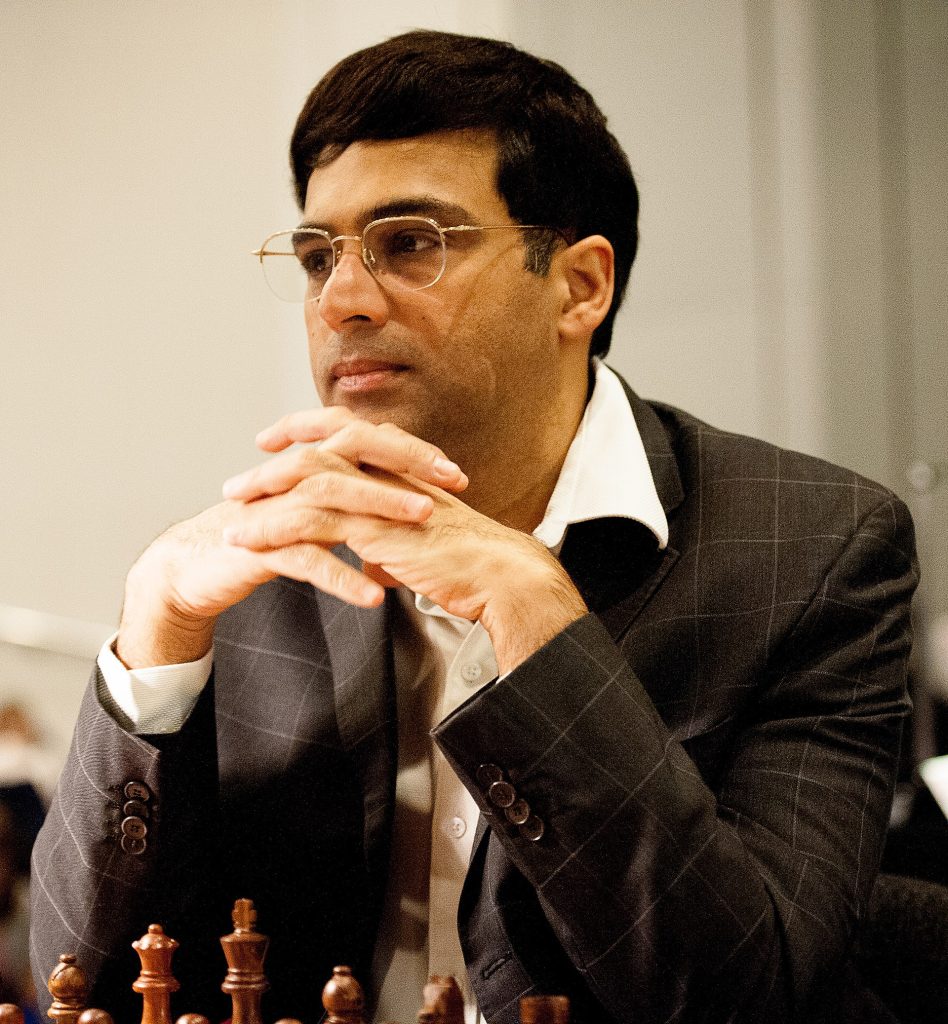
Anand in 2016 (Wiki Image).
Emanuel Lasker and Viswanathan Anand are two of the greatest chess players of all time. Lasker was the world champion from 1894 to 1921, while Anand is the former world champion.
In a hypothetical 12-game match between Lasker and Anand, it would be a very close match. Both players are incredibly strong, and they have different strengths and weaknesses.
Lasker was a master of positional play. He was able to build up a strong position and then slowly grind down his opponents. He was also very good at defending, and he was able to come back from difficult positions.
Anand is also a master of positional play. He is known for his ability to calculate variations very deeply and to find the best moves in even the most complex positions. He is also very good at defending, and he has a reputation for being very difficult to beat.
In terms of natural talent, Lasker was probably the more gifted player. He had an incredible memory, and he was able to see patterns on the board that other players could not. Anand is also a very talented player, but he does not have the same natural gifts as Lasker.
In terms of opening play, Lasker was the better player. He had a deep understanding of the opening theory, and he was able to surprise his opponents with unexpected moves. Anand is also a good opening player, but he was not as good as Lasker.
In terms of positional weaknesses, Lasker did not have any significant weaknesses in his positional play. He was very good at both attacking and defending. Anand has a few weaknesses in his positional play. He can sometimes be too passive, and he can miss opportunities to attack.
In terms of the middlegame, both players are very strong. They are both able to calculate variations, and they are both able to find the best moves in complex positions. However, Lasker was probably the better player in the middlegame. He was able to create more attacking chances, and he was able to take advantage of his opponents’ mistakes.
In terms of pawn defense, Lasker was the better player. He was able to defend his pawns very well, and he was able to create attacking chances from even the most difficult positions. Anand is also a good pawn defender, but he is not as good as Lasker.
In terms of endgame, Lasker was the better player. He was a master of endgame technique, and he was able to win many games from lost positions. Anand is also a very good endgame player, but he is not as good as Lasker.
In terms of sacrifice, both players were willing to sacrifice pieces in order to win the game. However, Lasker was probably the better player in this area. He was able to calculate the variations more accurately, and he was able to find the best sacrifices in even the most complex positions.
In terms of the players’ psychological state, Lasker was probably the more stable player. He was able to focus on the game even when things were not going his way. Anand is also a very mentally strong player, but he has been known to get frustrated when things do not go his way.
Ultimately, it is impossible to say for sure who would have won in a hypothetical match between Lasker and Anand. Both players were incredibly strong, and they had different strengths and weaknesses. However, Lasker was probably the better player overall, and he would likely have won the match.
However, it is important to note that Lasker was a very different player from Anand. Lasker was a master of positional play, while Anand is known for his attacking style. It is possible that Lasker’s positional style would have been too much for Anand to handle.
Ultimately, it is impossible to say for sure who would have won in a hypothetical match between Lasker and Anand. Both players were incredibly strong, and they had different strengths and weaknesses. It is up to each individual to decide who they think would have won.
Emanuel Lasker vs. Magnus Carlsen.

Carlsen at the Tata Steel Chess Tournament 2023 (Wiki Image).
Emanuel Lasker and Magnus Carlsen are two of the greatest chess players of all time. Lasker was the world champion from 1894 to 1921, while Carlsen is the current world champion.
In a hypothetical 12-game match between Lasker and Carlsen, it would be a very close match. Both players are incredibly strong, and they have different strengths and weaknesses.
Lasker was a master of positional play. He was able to build up a strong position and then slowly grind down his opponents. He was also very good at defending, and he was able to come back from difficult positions.
Carlsen is also a master of positional play, but he is also an incredibly aggressive player. He is always looking for opportunities to attack, and he is not afraid to take risks. He is also very good at calculating variations, and he is able to find the best moves in even the most complex positions.
In terms of natural talent, Lasker was probably the more gifted player. He had an incredible memory, and he was able to see patterns on the board that other players could not. Carlsen is also a very talented player, but he did not have the same natural gifts as Lasker.
In terms of opening play, Lasker was the better player. He had a deep understanding of the opening theory, and he was able to surprise his opponents with unexpected moves. Carlsen is also a good opening player, but he was not as good as Lasker.
In terms of positional weaknesses, Lasker did not have any significant weaknesses in his positional play. He was very good at both attacking and defending. Carlsen has a few weaknesses in his positional play. He can sometimes be too aggressive, and he can miss opportunities to defend.
In terms of the middlegame, both players are very strong. They are both able to calculate variations, and they are both able to find the best moves in complex positions. However, Lasker was probably the better player in the middlegame. He was able to create more attacking chances, and he was able to take advantage of his opponents’ mistakes.
In terms of pawn defense, Lasker was the better player. He was able to defend his pawns very well, and he was able to create attacking chances from even the most difficult positions. Carlsen is also a good pawn defender, but he is not as good as Lasker.
In terms of endgame, Lasker was the better player. He was a master of endgame technique, and he was able to win many games from lost positions. Carlsen is also a very good endgame player, but he was not as good as Lasker.
In terms of sacrifice, both players were willing to sacrifice pieces in order to win the game. However, Lasker was probably the better player in this area. He was able to calculate the variations more accurately, and he was able to find the best sacrifices in even the most complex positions.
In terms of the players’ psychological state, Lasker was probably the more stable player. He was able to focus on the game even when things were not going his way. Carlsen is also a very mentally strong player, but he has been known to get frustrated when things do not go his way.
Ultimately, it is impossible to say for sure who would have won in a hypothetical match between Lasker and Carlsen. Both players were incredibly strong, and they had different strengths and weaknesses. However, Lasker was probably the better player overall, and he would likely have won the match.
However, it is important to note that Lasker was a very different player from Carlsen. Lasker was a master of positional play, while Carlsen is known for his aggressive style. It is possible that Lasker’s positional style would have been too much for Carlsen to handle.
Ultimately, it is impossible to say for sure who would have won in a hypothetical match between Lasker and Carlsen. Both players were incredibly strong, and they had different strengths and weaknesses. It is up to each individual to decide who they think would have won.
Emanuel Lasker vs. Ding Liren.

Ding in 2023 (Wiki Image).
A hypothetical match between Emanuel Lasker and Ding Liren would be a very close match. Both players are incredibly strong, and they have different strengths and weaknesses.
Lasker was a master of positional play. He was very good at building up a strong position and then slowly grinding down his opponents. He was also very good at defending, and he was able to come back from difficult positions.
Liren is a very aggressive player. He is always looking for opportunities to attack, and he is not afraid to take risks. He is also very good at calculation, and he is able to find the best moves in even the most complex positions.
In terms of natural talent, Lasker was probably the more gifted player. He had an incredible memory, and he was able to see patterns on the board that other players could not. Liren is also a very talented player, but he does not have the same natural gifts as Lasker.
In terms of opening play, Lasker was the better player. He had a deep understanding of the opening theory, and he was able to surprise his opponents with unexpected moves. Liren is also a good opening player, but he is not as good as Lasker.
In terms of positional weaknesses, Lasker did not have any significant weaknesses in his positional play. He was very good at both attacking and defending. Liren has a few weaknesses in his positional play. He can sometimes be too aggressive, and he can miss opportunities to defend.
In terms of the middlegame, both players are very strong. They are both able to calculate variations, and they are both able to find the best moves in complex positions. However, Lasker was probably the better player in the middlegame. He was able to create more attacking chances, and he was able to take advantage of his opponents’ mistakes.
In terms of pawn defense, Lasker was the better player. He was able to defend his pawns very well, and he was able to create attacking chances from even the most difficult positions. Liren is also a good pawn defender, but he is not as good as Lasker.
In terms of endgame, Lasker and Liren were both very good. They were both able to find the best moves in even the most complex positions. However, Lasker may have had a slight edge in this area.
In terms of sacrifice, both players were willing to sacrifice pieces in order to win the game. However, Lasker was probably the better player in this area. He was able to calculate the variations more accurately, and he was able to find the best sacrifices in even the most complex positions.
In terms of the players’ psychological state, Lasker was probably the more stable player. He was able to focus on the game even when things were not going his way. Liren is also a very mentally strong player, but he can sometimes be affected by his emotions.
Ultimately, it is impossible to say for sure who would have won in a hypothetical match between Lasker and Liren. Both players are incredibly strong, and they have different strengths and weaknesses. However, Lasker was probably the better player overall, and he would likely have won the match.


